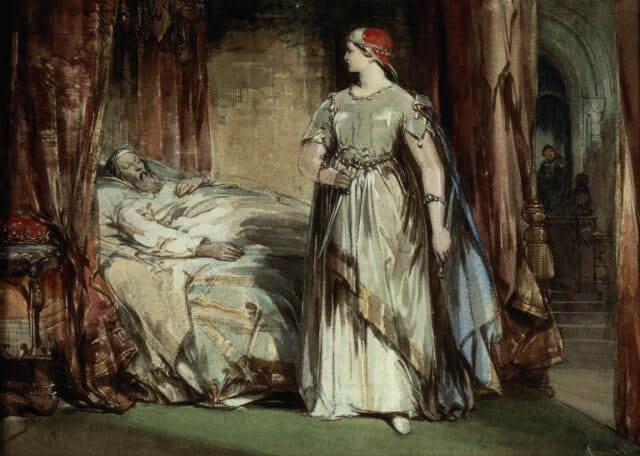I love directing Shakespeare’s plays. Since the words mean everything in a successful performance, I am always faced with the challenge of interpreting every speech, every difficult passage, every seemingly insignificant scene. I delight in discovering the dramatic impact of different possible interpretations in practices with the actors. I assume that every word is pregnant with meaning, both in its immediate context and with respect to the whole, and I am nearly always rewarded. No word is without the touch of the artist, though it take patience and thought and trial to discover it.
This summer I didn’t direct, but I was given the opportunity to portray the Porter in Macbeth. The Porter’s appearance at the beginning of II.3 is a ridiculously comic interlude – the only comic episode in the play – that shockingly interrupts the tension-filled, gory portrayal of the murder of Duncan and its discovery. The drunken Porter comes on to stage with no break in time (the knocks that wrench “Wake Duncan with thy knocking” from Macbeth do waken the Porter), rambles on about hell, equivocators and tailors, then enters into a stand-up routine on drunkenness and lechery with Macduff as his straight man. When Macbeth enters, the Porter is no more heard from. For all of his nonsense, the Porter makes his mark: “I pray you, remember the Porter,” may be ignored by Macduff, but not by the audience.
This content, as well as dozens of other articles and resources, are available to our member schools and educators.
Click here to learn about becoming a member.
Existing members log in here:

